News Archive 2019
News from January 2019
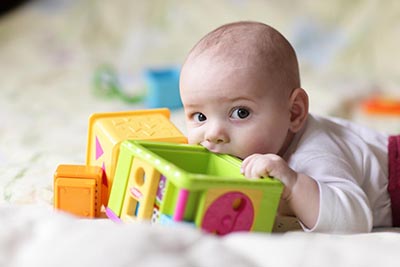
Back in April 2018, we reported on a draft to amend the REACh Chemical Regulation with respect to phthalates in consumer products. This draft has now been adopted by the Commission and published in the Official Journal of the European Union on 18 December 2018.
It contains regulatory content for the handling of phthalates bis(2-ethyl hexyl) phthalate (DEHP), dibutyl phthalate (DBP), benzyl butyl phthalate (BBP), and diisobutyl phthalate (DIBP), which are classified as toxic to reproduction. Just like the phthalates DEHP, DBP, and BBP for plasticized material in toys and baby products, DIBP is also being included in Annex XVII of the REACh Regulation.
Consumer products, which contain plasticized materials, will also be covered by Entry 51 in this Annex now. As of July 7 2020, both toys, baby products, and consumer products containing DEHP, DBP, BBP, and DIBP in concentrations of 0.1 per cent – individually or in total – must no longer be distributed. “Plasticized materials” are defined in greater detail (examples: PVC, PVA, and other polymers, except for polyolefins; rubber, except for silicon rubber; foams; coatings; printing inks). Furthermore, a number of exceptions apply, for example, to materials and items in contact with food, medical equipment or electric and electronic devices.
If you have any questions on this topic, please get in touch with your respective sales representative in the sales department or our customer competence center at the phone number +4940600202777 or by e-mail.
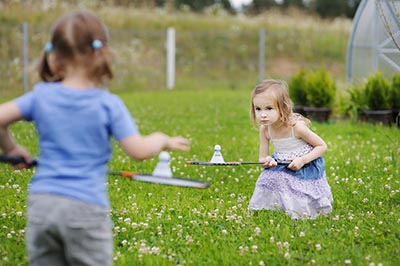
| Material | Current Limit | Proposed Limit |
| in dry, brittle, powdery, or pliable toy materials | 5,625 mg/kg | 2,250 mg/kg |
| in liquid or adhesive toy materials | 1,406 mg/kg | 560 mg/kg |
| in scraped-off toy materials | 70,000 mg/kg | 28,130 mg/kg |
The chemical compound of formaldehyde is classified as a category 1B carcinogenic substance. It is used, among other things, in polymer materials, in adhesive components, in resin bonded wood (for example, MDF, HDF boards) as a preservative and in the manufacture of textiles, leather, and paper. In December 2018, the EU commission published a draft amending the Toy Directive 2009/48/EC. According to which, limits for formaldehyde are to be adopted in Appendix II of Annex C to the Directive. The new regulation applies to toys intended for small children under three years of age as well as other toys intended to be put in the mouth.
| Material | Proposed Limit |
| Polymers | 1.5 mg/L (migration) |
| Resin-bonded wood | 0.1 ml/m³ (emission) |
| Textile | 30 mg/kg (total concentration) |
| Leather | 30 mg/kg (total concentration) |
| Paper | 30 mg/kg (total concentration) |
| Aqueous material | 10 mg/kg (total concentration) |
The new planned regulations are based on the requirements of EN 71-9, but the limits for polymers and aqueous materials have been set somewhat lower. For wood materials, testing no longer has to be conducted in accordance with EN 717-3 (flask method), but rather in accordance with EN 717-1 (test chamber method) in the future. The draft is set to be adopted in the second quarter of 2019; the new regulation could take effect at the end of 2020.
If you have any questions on this topic, please get in touch with your respective sales representative in the sales department or our customer competence center at the phone number +4940600202777 or by e-mail.

The standard DIN EN 14682 harmonized the regulations for the use of cords and bands in clothing for children up to 14 years of age. However, articles of clothing and accessories, which do not fall under the applicable domain of the standard, must be inspected with respect to their risk potential and handled accordingly. Otherwise, serious sanctions may apply: The German Product Safety Act stipulates that product managers on every production level can be held legally responsible if their products fail to comply with the safety requirements and cause accidents as a result.
Our seminar Product Safety of Children’s Clothing on March 21, 2019 in Hamburg provides detailed information about the application of DIN EN 14682 and possible solutions for implementation on a company level. Furthermore, you will also learn strategies for assessing risks, for example, relating to small parts that can be swallowed. You can also exchange experience and get answers to your questions that arise in everyday practice.
Here you will find all the important information about content and conditions for participation (only in German). If you have any questions, please feel free to contact us by calling +49(0)40 600202-330 or by sending an email.
News from February 2019
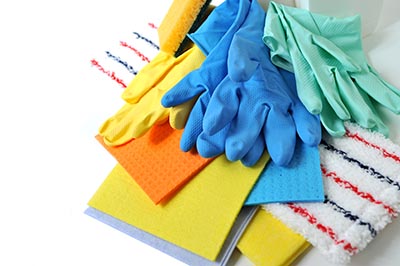
As a result, it will be prohibited in the future to introduce articles to the market if the released formaldehyde exceeds a limit of 0.124 mg/m3. The release of formaldehyde will be measured in accordance with the standard EN 717-1. Articles, which fall under the new provision 2018/1513 for CMR substances in clothing, footwear and other textiles, shall be excluded. For these articles, a limit for the total concentration of formaldehyde in the amount of 300 mg/kg will take effect on November 1, 2020 and the limit will be further reduced to 75 mg/kg as of November 1, 2023. Articles where formaldehyde or formaldehyde separators are used as a biocide in accordance with Regulation 528/2012 will also not be affected.
If you have any questions on this topic, please get in touch with your respective sales representative in the sales department or our customer competence center at the phone number +49(0)40 600202-777 or by e-mail.
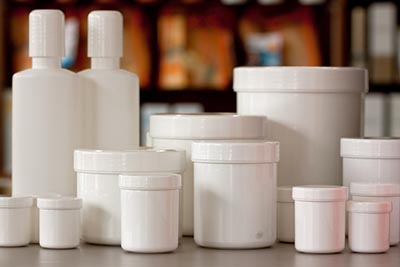
The new candidate substances include four polycyclic aromatic hydrocarbons (PAHs), which can occur as a component or contaminant in other substances: Benzo[k]fluoranthene, fluoranthene, phenanthrene and pyrene. 2,2-bis(4'-hydroxyphenyl)-4-methylpentane and 1,7,7-trimethyl-3-(phenylmethylene)bicyclo[2.2.1]heptane-2-on (3-benzylidencampher) are also affected. The substance 2,2-Bis(4'-hydroxyphenyl)-4-methylpentane has not yet been registered under the REACh Regulation and may be used in the production of thermal paper. 3-benzylidencampher is used as a UV filter in sun cream and other cosmetics.
If you have any questions on this topic, please get in touch with your respective sales representative in the sales department or our customer competence center at the phone number +49(0)40 600202-777 or by email.

In our two-day seminar “Dyeing, Printing, and Finishing – The Basics of Textile Refinement” on April 16 and 17, 2019 in Hamburg, you will be introduced to the different treatment processes used for designing textiles. Legal requirements relating to safety, health and environmental friendliness, which play an increasingly important role in production and marketing, will also be discussed.
Here you will find all the important information about content and conditions for participation (only in German). If you have any questions, please feel free to contact us by calling +49(0)40 600 202-330 or by sending an email.
News from March 2019
News from April 2019
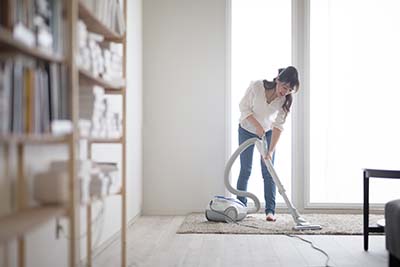
Suppliers of vacuum cleaners are no longer allowed to market their products in the EU with the energy label as originally prescribed by the EU regulation. The following applies to stationary retail, distance selling and online retail: The energy label must no longer be displayed with vacuum cleaners and the product data sheet must no longer be made available to customers. References to the energy efficiency class of vacuum cleaners and the range of efficiency classes present on the label are no longer permitted in visual advertising or technical advertising material. Furthermore, suppliers must no longer enter the information regarding their vacuum cleaners referred to in Article 4 and Annex I of Regulation (EU) 2017/1369 of the European Parliament and Council (1) in the public part and conformity part of the product database.
The background is a court ruling according to which the test method for determining energy efficiency selected by the EU Commission does not reflect actual consumer behavior in a sufficiently accurate manner. This method only employed tests with empty vacuum cleaner bags.
The manufacturers and vendors should test their assortments and promptly adapt their labeling. After all, the State Agency for Nature, Environment and Consumer Protection North Rhine Westphalia (LANUV) stated that “the continued use of the vacuum cleaner label constitutes an offense and may also result in warnings initiated by competitors”. The court ruling does not, however, have any effect on the eco-design requirements for vacuum cleaners or the requirements for energy consumption labeling of other products.
If you have any questions on this topic, please get in touch with your respective sales representative in the sales department or our customer competence center at the phone number +4940600202-888 or by e-mail.
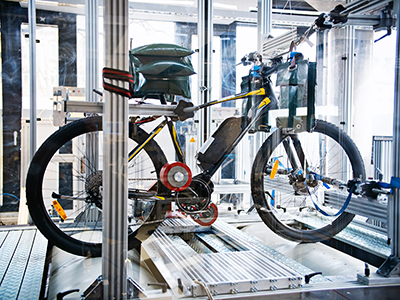
With the Implementation Decision (EU) 2019/436 of the Commission, the latest version of the harmonized standards was published in connection with the Machine Directive in March 2019. The EPAC standard falls under this for the first time too: EN 15194:2017 “Cycles – cycles with pedal assistance, which are equipped with an auxiliary electric motor – EPAC cycles”. This latest version of the standard applies immediately as a stipulation for the fulfillment of legal requirements.
In connection with its accredited test services*, Hansecontrol offers the tests in accordance with DIN EN 15194:2018 / EN 15194:2017 and is happy to provide assistance for any questions relating to the quality and safety requirements of pedelecs. As a long-standing member of the DIN standard committee for cycles, we have in-depth expertise and extensive experience testing pedelecs. These are the perfect prerequisites for ensuring comprehensive supervision in the sense of our customers.
* Declaration: Test laboratory accredited in accordance with DIN EN ISO/IEC 17025 by the DAkks and certification body accredited in accordance with DIN EN ISO/IEC 17065. The accreditation is only valid for the accreditation scope listed in the certificate annexes (D-PL-12142-01-01, D-PL-12142-01-02, D-ZE-12142-01-00 and D-PL-14563-01-00).
If you have any questions on this topic, please get in touch with your respective sales representative in the sales department or our customer competence center at the phone number +4940600202-888 or by e-mail.

Our two-part seminar package “Textile Surfaces” provides you with essential fundamental knowledge of the construction and properties of woven and knit fabrics. The seminar “Textile Surfaces I: Woven Fabrics” will take place in Hamburg on June 18, 2019. The seminar “Textile Surfaces II: Knit Fabrics” will follow on June 19. The modules can be booked individually or as a discounted package.
Here you will find all the important information about content and conditions for participation (only in German). If you have any questions, please feel free to contact us by calling +49(0)40 600202-330 or by sending an email.
News from May 2019

The first draft of the legal revision was published on April 16, 2019. This affects both distributors of timber and timber products as well as the trade chain participants. Thus, only timber that has been legally harvested and traded in the country of origin may be distributed and traded in the future. The distributors are subject to a corresponding duty of care whose nature, content and scope can be defined by the Federal Council. Vendors are in turn required to ensure traceability and to document from which supplier they have purchased timber or timber products as well as their buyers.
If you have any questions on this topic, please get in touch with your respective sales representative in the sales department or our customer competence center at the phone number +4940600202-888 or by e-mail.

The new requirements apply to both commercially available window coverings and also to articles designed according to customer wishes. The new law will take effect on May 1, 2021. Until then, manufacturers, importers and retailers have time to implement the new regulations.
If you have any questions on this topic, please get in touch with your respective sales representative in the sales department or our customer competence center at the phone number +4940600202-888 or by e-mail.

Our two-part seminar package on the topic of REACh provides you with an overview of the requirements resulting from the regulation and identifies sensible measures. At the REACh info-day on September 4, 2019 in Hamburg, you will learn everything about the basics, roles and duties from the regulation. The seminar “REACh for Products – Implementation in Company Practice” on September 5, 2019 builds on this and provides practice-oriented expertise relating to the provision of information and documentation in connection with company quality assurance. The seminars can be booked individually or as a package.
Here you will find all the important information about content and conditions for participation (only in German). If you have any questions, please feel free to contact us by calling +49(0)40 600202-330 or by sending an email.
